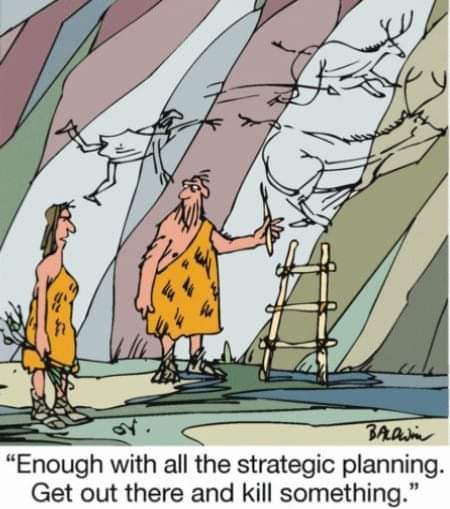The Indian integral model of Management and
Economics through ages
Some points for discussion...
Part 1: The Eternal Ever Creating
endeavour
1.
Ancient
India’s most original, indigenous and
integral system of management: From symbolic, Typal to Conventional age
a) As
seen In The Vedas and The Upanishads
b) In
Puranas, Shastras, Niti and popular literature
c) India’s
own model of integral management:
integrating individual internally
with his own self and externally with
his aggregates.
d) India’s
journey of management thought from
Symbolic age to Typal, Individual and
Spiritual age
e) An
overview of India’s contribution to the world thought and culture: not only in
philosophy but in Business and Management
2.
Indian
management systems seen in practice in the ancient and medieval history of
India: From Typal, Conventional to
Individual and Spiritual age
a) Examples
in statesmanship, polity and social structures
b) In
trade and business excellence
c) The decentralised village level democracy and
Varnashrama system : the spinal column
of Her eternal glory
d) The
Indian `we’ model excelling in psychological, sociological, ecological and
spiritual needs of mankind
e) The
inevitable period of decline following
stupendous age of vitality and creativity.
Part 2: The Present Cycle:
3.
The
systematic destruction of Indian management systems by colonial
powers:
Era of Indian Cycle on
downturn coinciding with rise of a human cycle in Europe
a) The
reductionist, individualised, industrialised and materialistic model imposed to
spread colonial rule
b) Indian
business, textiles, trade, crafts paralysed. Our specialities, expressions
and skills crushed and killed
c) Substitution
by mass produced eco disastrous products of industrialization and subsequent loss
of culture and identity
d) Unfortunate
era of post- independence wasted in
aping Western model of management and development.
4.
The
western era of management: the recent cycle
from Typal, Conventional to Individual age
a) The
chaos of middle age based on random use of men and machines
b) Scientific
management
c) Its
counterbalance by human factor brought in
d) Mental
age / Age of reason and individual : growth of industries Productivity and
efficiency : the pick of their achievements and contribution to evolution of
Humanity
e) The
colonisation of the model to Asia and other parts of the world.
Overview
of management history till today including the expression of Modern Global
Management (US, European, Japanese and Russian School of Management):Strategic
Management Aspects, Sales and Marketing Aspects, Finance and Costing Aspects,
Operations & Supply Chain Management Aspects, Theory of Constraints,
Quality Management Aspects, Human Resources Management Aspects, Legal and
Compliance Management Aspects, Environment and Sustainability Aspects,
Analytics and Knowledge Management
5.
The
imposition, imitation and own reactions or assimilation by India and Asia in
general: India and Asia prepare for next ascent of cycle
a) Asia
attempting to imbibe the model in its own way: Quality revolution in Japan.
b) The
early Businesses and entrepreneurs in India
c) The
glaring deficiencies of the model highlighted by wars, revolutions, social
unrest and economic recessions showing
insufficiency as a solution or panacea for mankind
d) Rise
of China, Korea and other nations in business
e) Indian
traditional systems still sustaining : thriving economy and growth story of
India
f) Indian
cultural system still valid in small medium enterprises, entrepreneurs, family
businesses, skill industry and arts and crafts.
g) Leading
thinkers, Management gurus and business heads leading to India management
story.
h) The
four powers: Wisdom, Strength, Harmony, Perfection.
Part
3: The Evolutionary Crisis
6.
The
evolutionary crisis today in Indian business and in the world : the end of the
curve of reason and the signs of subjective and spiritual age:
a) The
new physics and paradigm bringing era of new challenges-9
b) Unmanageably huge structures and massification challenged
c) The
new cycle of individuals and then subjective age.
d) Prosumers,
customization, lateral thinking, IT
enabled infoage, Coolaborative design
and flat organizations, The Chaos, and complexity.
e) AI
and VR revolution, Genomes and singularity come as prevading possibilities of future
in management
f) The
search for Suprarational Good and Suprarational Beauty
g) Turn
to the spiritual age: the early signs
h) Sri
Aurobindo’s vision of the future: India’s way of Integral management by
consciousness:
7.
Sri Aurobindo’s integral thought
on Management: The excerpts from
a) The
Human Cycle and The Ideal of Human Unity: The cycle of society
b) The
Life Divine
c) The
Foundations of Indian Culture
d) The
Mother
e) The
four Powers: Wisdom, Strength, Harmony and Perfection
f) The
ideal of five sheath person and spiritual
leader: Rajarshi
g) Sri
Aurobindo’s Evolution of Consciousness Approach: Synthesis: Comparative
tabulation of Management, Sri Aurobindo’s words and gems from Indian Scriptures


No comments:
Post a Comment